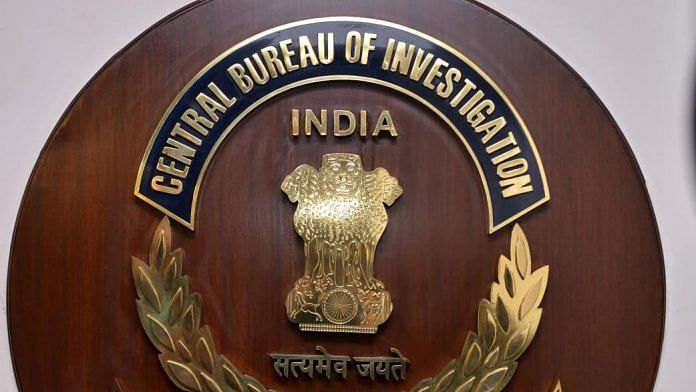New Delhi: The Congress government in Rajasthan Monday evening withdrew its general consent accorded to the Central Bureau of Investigation (CBI) to probe cases in the state, making it compulsory for the central agency to take the local government’s permission to enter its jurisdiction for the purposes of investigation.
“…In view of revocation of all previous general consents issued earlier vide notifications, prior consent of Government of Rajasthan shall be required to be taken on a case-to-case basis for the investigation of any offence,” read the order signed by Ravi Sharma, senior deputy secretary of Rajasthan’s home department.
The revocation order came a day after the Bharatiya Janata Party (BJP) demanded a CBI investigation into the leaked audio tapes containing alleged conversation between rebel Congress MLAs and Union Minister Gajendra Singh Shekhawat.
The demand for a CBI probe came after Shekhawat was served with a notice to appear before the Rajasthan Special Operations Group (SOG), which had registered a case into the allegations of horse trading and a conspiracy to topple the Ashok Gehlot government.
Monday’s development effectively prevents the CBI from free entry into state’s jurisdiction for the purposes of any probe. Any action will require the agency to first acquire a court order or express consent from the state administration.
However, the withdrawal of consent only applies to fresh cases in the state and conducting a raid. It does not not impact cases already under the agency’s supervision, according to a Supreme Court ruling.
Also read: Sachin Pilot’s rebellion triggers battle royale in Rajasthan — Scindia vs Scindia, BJP vs Raje
CBI can probe a case in Rajasthan only under 3 circumstances
A national agency with police powers, CBI’s primary jurisdiction is confined to Delhi and Union Territories. As policing is a state subject, the law permits the agency to function within its jurisdiction only with the state government’s approval.
The powers of the CBI are defined under the Delhi Special Police Establishment (DSPE) Act. Section 5 of the law extends the powers and jurisdiction of the CBI to states, but it is restricted by Section 6 that says the agency cannot investigate or conduct a raid in a state without the express consent of the government concerned.
The CBI can take over a criminal case registered by a state police only in three situations: First, the state government concerned makes a request to that effect and the Centre agrees to it pursuant to receiving comments from the CBI. Second, the state government issues notification of consent under Section 6 of the DPSE Act and the Centre also issues a similar notification. And finally, if the Supreme Court or the high court orders the CBI to take up a case.
The Rajasthan government’s latest notice means the CBI cannot investigate any case in the state unless one of the above three conditions are met.
“The horse-trading allegations can now be transferred to the CBI only by a judicial order, provided the court feels that the case is a glaring example of violation of fundamental rights,” said Supreme Court lawyer, senior advocate Gopal Sankaranarayanan.
Also read: MHA asks Rajasthan Chief Secretary for report on phone tapping allegations
Has state consent been withdrawn earlier?
Rajasthan is not the first state to withdraw its general consent given to the CBI. Earlier, in 2018, Andhra Pradesh and West Bengal had issued similar notifications, barring the CBI from exercising its authority in their respective territorial jurisdictions. Chhattisgarh followed suit in January 2019.
However, Andhra Pradesh in 2019 reversed its decision after Y.S. Jagan Mohan Reddy became chief minister.
Last year, West Bengal and CBI were locked in an administrative power struggle when the CBI sought to question then Kolkata Police commissioner Rajeev Kumar for his alleged involvement in the Saradha scam.
The state police had taken CBI officials into custody, prompting the agency to rush to the Supreme Court for an intervention.
In 2003, Sikkim withdrew its consent after the CBI registered a case against Nar Bahadur Bhandari, the chief minister at the time.
Also read: CBI to investigate irregularities in 2016 Manipur civil service examinations
Supreme Court decider
While the CBI requires state sanction to investigate within the state’s jurisdiction, a question remain on the nature of sanction needed. A final decision on this is still awaited from the Supreme Court.
In 2019, the CBI had approached the apex court with a plea to examine this question that arose in the disproportionate case against former Himachal Pradesh chief minister, Virbhadra Singh.
The agency had challenged the limited part of a Delhi High Court order that refused to quash the alleged corruption case against Singh. The court had said the consent issue will be adjudicated by the trial court.
The CBI had contended before the high court that the Himachal Pradesh government had given a general consent on 24 August 1990 to probe offences by central government employees in the state. But Singh had argued that the consent order did not take within its scope a central minister who served as a public servant at Delhi under the central government.
In its appeal before the top court, CBI had said that section 6 of DPSE did not talk about the nature of consent and, therefore, it asked the court for a clarification on the issue as it would affect its power to investigate cases.
Also read: CBI has been waiting 4 months for sanction to prosecute 3 MPs, shows latest CVC data



